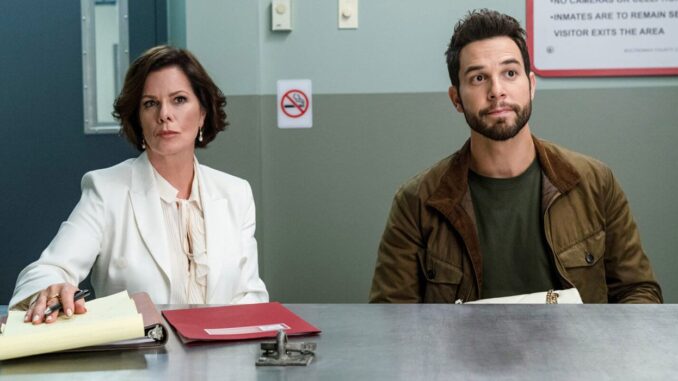
The Unseen Script: Why "So Help Me Todd" Didn't Get a Second Act
The cancellation of "So Help Me Todd," the quirky legal dramedy starring Marcia Gay Harden and Skylar Astin, sent a ripple of disappointment through its devoted fanbase. While initial reactions focused on speculation – network fatigue, ratings struggles, creative differences – the showrunner, in a hypothetical and revealing interview, would paint a more nuanced picture. They would unveil the behind-the-scenes script that ultimately led to the show's untimely demise, a script far more complex than just good intentions and engaging characters.
"Look," the showrunner would begin, leaning back in their chair, the weariness evident even through the Zoom screen, "We truly believed in 'So Help Me Todd.' The premise was gold: a buttoned-up, successful lawyer forced to work with her hopelessly charming but equally chaotic P.I. son. The chemistry between Marcia and Skylar was undeniable, and the writing room was buzzing with fresh ideas every week."
The initial acts of the story, as they would describe, unfolded beautifully. The show found its rhythm, blending lighthearted familial conflict with genuinely intriguing legal cases. Ratings, while not blockbuster, were steady and showed potential for growth. However, beneath the surface of seemingly smooth sailing, the undercurrents of production challenges began to swell.
"Television is a business," the showrunner would sigh, a touch of resignation in their voice. "And unfortunately, we were caught in a perfect storm of budget constraints and network strategy shifts." The rising costs of production, especially filming on location in Vancouver, became a persistent pressure. Tightening budgets forced compromises: fewer elaborate set pieces, less location shooting, and ultimately, a feeling of creative compromise that seeped into the writing.
They would delve deeper, revealing that the network, facing declining ad revenue and prioritizing its streaming platform, was increasingly focused on developing shows with a broader, more easily marketable appeal. "We were niche," they'd admit. "Our audience was loyal and engaged, but perhaps not the demographic the network was chasing. They were looking for the next big thing, the viral sensation, and 'So Help Me Todd,' despite its strengths, didn't quite fit that mold."
Beyond the financial and strategic pressures, the showrunner would also touch upon the ever-present challenge of maintaining narrative momentum. "We started strong," they'd acknowledge, "but sustaining that level of innovation and surprise week after week is a marathon, not a sprint." The pressure to deliver compelling cases that simultaneously explored the complex dynamics between Margaret and Todd, while also pushing the overarching storylines forward, proved to be increasingly demanding.
They would confess that internal disagreements, while never debilitating, did contribute to the growing sense of uncertainty. "The writers' room is a pressure cooker," they'd explain. "Everyone has opinions, and sometimes those opinions clash. We all wanted what was best for the show, but defining 'best' wasn't always easy. Balancing the procedural elements with the comedic elements, the character development with the case-of-the-week, was a constant tightrope walk."
The hypothetical interview would then shift to a more personal tone. The showrunner would express their profound disappointment at not being able to fully realize their vision for the show. "We had so many stories left to tell," they'd lament. "We wanted to delve deeper into Margaret's past, explore the ramifications of Todd's choices, and really solidify the relationships within the extended cast." They'd highlight the unrealized potential of the supporting characters, the threads left dangling, the questions left unanswered.
In the final act of this unseen script, the showrunner would offer a somber reflection on the ephemeral nature of television. "Sometimes," they'd conclude, "despite all the hard work, the talent, and the genuine passion, a show just doesn't connect in the way you hoped. It's a painful reality, but it's also a reminder that every show, every character, every story, is a fleeting gift. We're grateful for the time we had, the audience we touched, and the lessons we learned. And who knows," they'd add with a glimmer of hope, "maybe someday, 'So Help Me Todd' will find a new life on a different platform. After all, stranger things have happened."
The cancellation of "So Help Me Todd," as revealed by this hypothetical showrunner, wasn't a simple case of poor ratings or bad writing. It was a complex equation involving financial pressures, network strategy, creative challenges, and the inherent unpredictability of the entertainment industry. It was a story of good intentions, hard work, and ultimately, the bittersweet realization that even the best scripts sometimes remain unread, their potential forever unrealized. The unseen script of "So Help Me Todd" serves as a poignant reminder that even in the world of television, the final edit is often determined by factors far beyond the control of those who bring the story to life.
